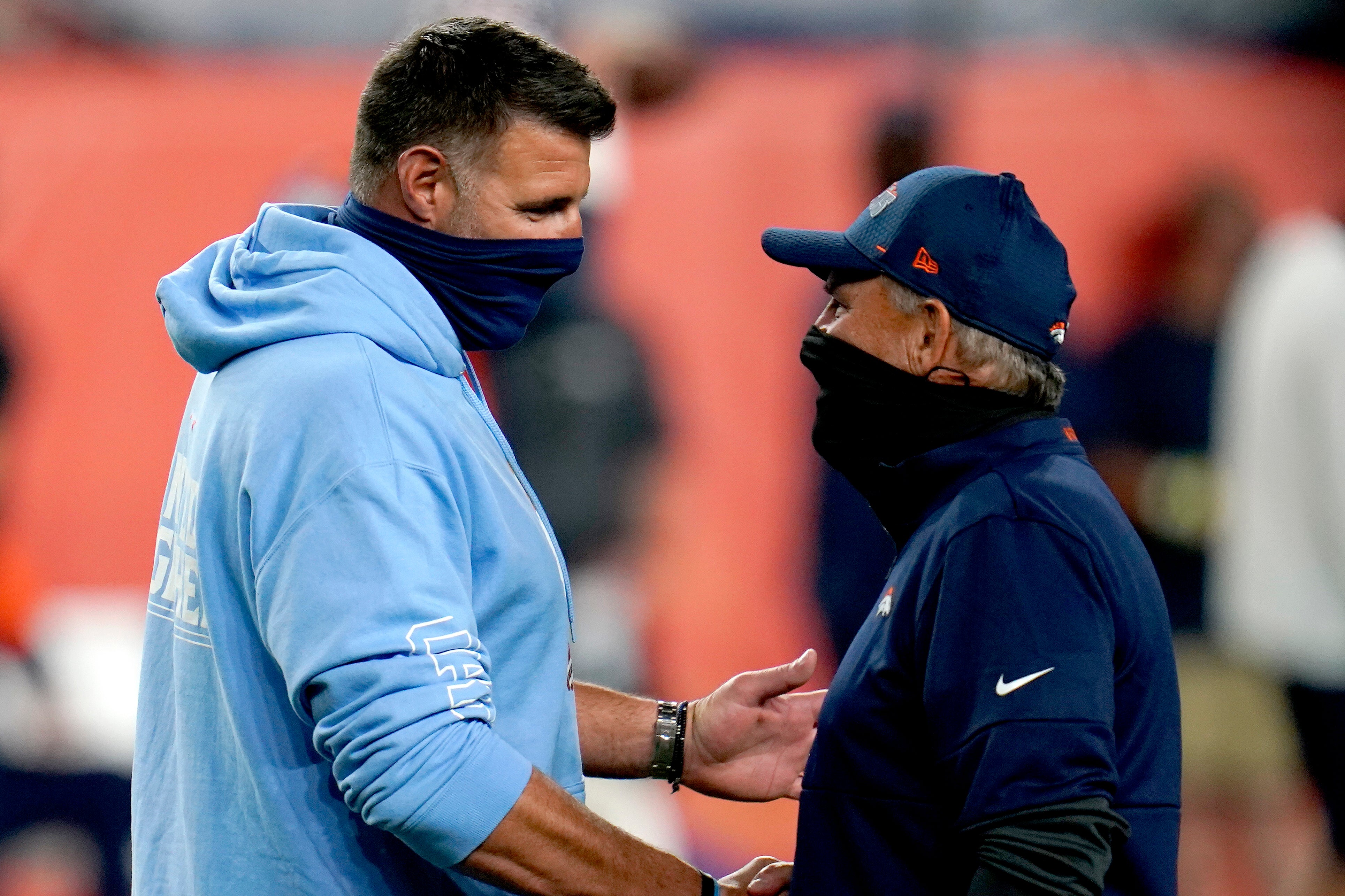Analysis: NFL's juggling act probably has just begun
If fans are feeling dizzy, their heads spinning like they were jonesing on Lamar Jackson/Patrick Mahomes highlight videos, it’s understandable

Your support helps us to tell the story
From reproductive rights to climate change to Big Tech, The Independent is on the ground when the story is developing. Whether it's investigating the financials of Elon Musk's pro-Trump PAC or producing our latest documentary, 'The A Word', which shines a light on the American women fighting for reproductive rights, we know how important it is to parse out the facts from the messaging.
At such a critical moment in US history, we need reporters on the ground. Your donation allows us to keep sending journalists to speak to both sides of the story.
The Independent is trusted by Americans across the entire political spectrum. And unlike many other quality news outlets, we choose not to lock Americans out of our reporting and analysis with paywalls. We believe quality journalism should be available to everyone, paid for by those who can afford it.
Your support makes all the difference.If fans are feeling dizzy, their heads spinning like they were jonesing on Lamar Jackson/Patrick Mahomes highlight videos, it's understandable.
All of the schedule juggling the NFL is doing feels like a Tilt-A-Whirl gone mad. Even worse, it's almost certainly not over.
Super Bowl in springtime? Not out of the realm of possibility.
The COVID-19 outbreak in Tennessee, followed by a mini-outbreak in New England, has forced all sorts of machinations. No team s schedule through late November has been more disrupted than the Chargers — and they haven't had a coronavirus positive.
Sure, the Titans seem to have some rescheduling done daily by the league, and the Patriots don't know when they are able to practice at their facility or must go totally virtual. Yet when the NFL on Sunday shuffled the schedule cards, it was the Chargers who came up with deuces.
Get this: The Chargers had four games and their bye impacted. Not only will fans have to check whose playing in the upcoming weeks, so will the players.
As if that's not enough upheaval, consider that we are in Week 5. That means 12 more weeks on the schedule, ending on Jan. 3. Except that getting in all of the games by then likely is a pipe dream in a collision sport with so many participants per team. Not to mention dozens of organizational members who work at team facilities.
After several of his players turned to social media to complain about the uncertainty, Broncos coach Vic Fangio said he understood his players’ feelings.
“But my message to them and to anybody is we were inconvenienced by this, but it very easily could have been flipped around to where we had the positive tests and the Patriots were inconvenienced by it,” Fangio suggested. “So, I’m happy that the positive tests weren’t in our building. But I’m under no illusion that at some point we might have a positive test or two and be the cause of a game getting moved down the road.”
Whatever wiggle room the NFL had in compiling the schedule released in the spring pretty much is gone. Further outbreaks — or the continuance of the ones in Nashville and Foxborough — will lead to more disturbances. But given the nature of the sport and the inability to play games too close together on any regular basis, the league is now cornered.
There are solutions. They aren't that different from what NHL and NBA, even golf and tennis have done: extend the schedule beyond the original calendar.
NFL executives have said they have myriad contingency plans, which have to include regular-season games in January. How many? As many as are needed to get to 16 games — barring a total shutdown of the entire league.
How late into January? Whatever it takes to have everyone play 16 games.
Other team sports have considered using or to employ winning percentage to determine playoff berths when necessary. When you play just 16 games in a season, though, it seems inherently unfair to reward or penalize any team that can't get to 16 because of a pandemic.
Certainly there are factors to consider about stretching the regular season into a month when the playoffs should be going on. For one, of course, it means pushing back the Super Bowl from Feb. 7 if more than one week in January is needed to complete the season. It means a longer schedule for the also-rans who want to get away and forget.
There's also the weather factor in so many cities. Then again, the NFL has been playing night games in Green Bay and New England and Kansas City during frigid months for years.
There are the broadcast partners to consider. It's hard to imagine them complaining about more NFL content stretched further into the winter when pro football dominates the ratings — not only in sports, but overall.
While pushing the Super Bowl back in February might be an inconvenience to organizers in Tampa, well, who's to say the upcoming big game will have fans on hand, given how COVID-19 has affected the nation? It might very well be akin to the studio shows that so many NFL contests are right now.
As Dr. Allen Sills, t he league's medical director, has stated countless times: “We’ve said all along every option’s on the table. We’ve never taken any option off the table, which includes some type of pause or reset or any other type of alternative arrangements.”
Stay tuned.
___
AP Pro Football Writer Arnie Stapleton contributed.
___
More AP NFL: https://apnews.com/NFL and https://twitter.com/AP_NFL